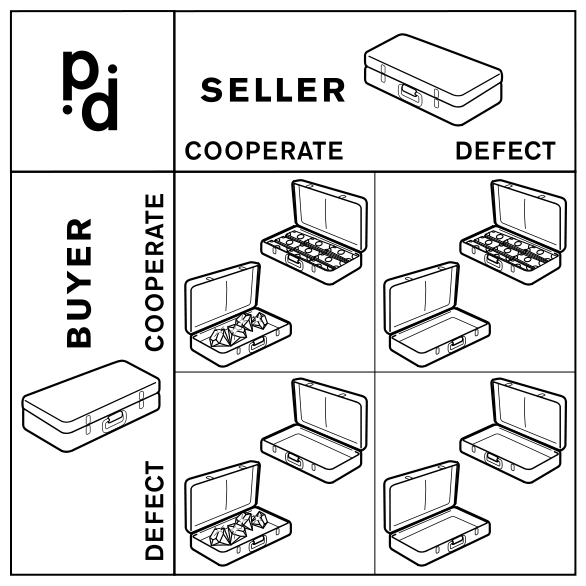If you’ve heard of the hormone oxytocin, you’ve probably heard it called the “love drug”, due to its known role in human bonding and empathy. One of the many potential uses put forward for such a miracle molecule is a treatment for autism, which is characterized by difficulty in social interactions and empathizing…but some argue that this idea is jumping the gun, because oxytocin should not be seen as a wonder-drug and its role may be far more complex than we know. This perspective has just been supported by evidence that the impact of oxytocin on social judgments is not all positive; administering oxytocin to typical (male) adults may actually impair their ability to understand what other people are thinking.
Half an hour after taking an nasal spray of either syntocinon (oxytocin, prescribed to help induce labor) or a placebo, young men were asked to watch clips from Friend or Foe, a game show which puts contestants through the prisoner’s dilemma: if both partners agree to remain “friends”, they split their winnings; if both part as “foes”, then both leave with nothing; but if only one of them want to remain “friends”, it’s the defector who walks away with everything while the friendly one gets nothing.

In the prisoner’s dilemma, both friends can split the pot…or one can defect and abscond with everything. Image by Chris Jensen and Greg Riestenberg.
The drama of the show comes in the few minutes where the partners try to persuade each other to remain friends – all while one or both might be secretly planning to vote “foe”. These persuasive moments were the focus of the study, as student volunteers tried to decide whether each person was going to vote friend, or foe. Essentially, they had to decide if each person they watched was being honest (we’ll part as friends, and split the money) or deceptive (I want you to vote friend, so I can walk away with everything).
That quick spray of oxytocin up the nose made men less accurate at predicting what the contests would decide; on average, they read one more person wrong (out of the eight total contestants they watched) than those who had only spritzed their nasal passages with placebo. One wrong prediction of behavior out of eight guesses doesn’t seem like much…but it could have been worth several thousand dollars on the game show, or something more intrinsically valuable if the question of trust had been a matter of the heart. It might not be a risk worth taking.
![]()
Israel S, Hart E, & Winter E (2014). Oxytocin decreases accuracy in the perception of social deception. Psychological Science, 25 (1), 293-295 PMID: 24225448

Is there any pattern in the decrease in accuracy? Does the oxytocin result in a higher level of “trust” where one is more likely to predict “friend” ?
The researchers did wonder about this, but the oxytocin didn’t seem to make the volunteers more trusting or less trusting, overall: they were just as likely to guess “friend” across all of the clips, they just guessed it for the wrong ones.